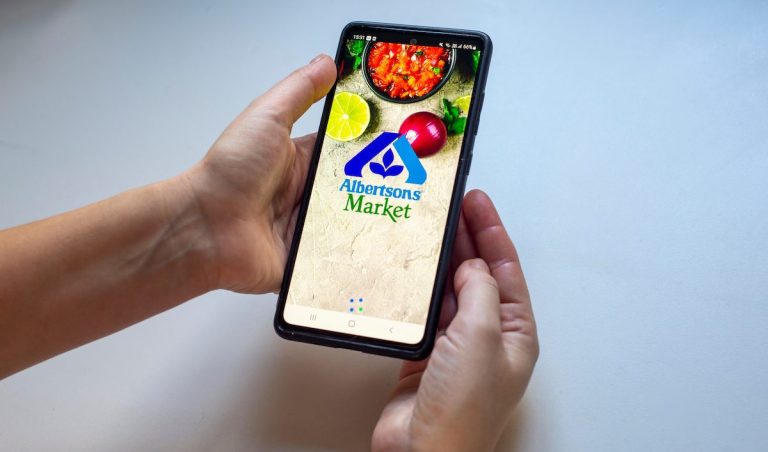Albertsons and Other Grocers Expand Mobile Offerings to Drive Loyalty

As traditional grocers face increasing competition from eCommerce, they are broadening their digital ecosystems.
Albertsons Companies, for its part, the grocery giant behind a wide range of well-known supermarket chains including Safeway, Vons and Jewel-Osco, and bought by Kroger in October, is looking to deepen its relationships with customers by adding more wellness features to its app.
The company announced in a Monday (Feb. 6) press release that it is launching Sincerely Health, which includes fitness integrations with trackers such as Apple Health and Fitbit, pharmacy offerings such as prescription management tools and vaccine appointment scheduling and goal-tracking features, among others.
“As a grocery and pharmacy retailer committed to the health and wellness of our communities, we are empowering customers to have a connected and personalized view of their health across food, nutrition, activity, mental well-being and pharmacy services, enabling them to make more informed choices,” Omer Gajial, chief digital officer and executive vice president of health at Albertsons., said in the release.
The features are available within Albertsons’ subsidiaries’ various apps, encouraging mobile engagement with these supermarket brands. Indeed, PYMNTS research indicates that brands and retailers that can meet consumers’ needs across as many pillars of the ConnectedEconomy™ as possible — how they eat, shop, pay, live, travel, bank, work, communicate, have fun and stay well — have the advantage over those that stay limited to just one. As such, by broadening its wellness features, Albertsons is embedding its offerings more deeply in consumers’ day-to-day routines.
The move comes as grocers look to step up their digital offerings to keep consumers engaged. For instance, also Monday, a New York City grocer became the first to deploy Instacart’s Scan & Pay storewide. Plus, last month, Michigan-based supermarket chain Meijer announced the launch of an update to its mPerks loyalty program to improve its rewards personalization capabilities.
Mobile features are also becoming more widely accessible to grocery chains of all sizes, including those that do not have the resources to build their digital ecosystems from scratch. Grocery technology company Mercatus announced last month the launch of a mobile app offering for regional chains including loyalty features, eCommerce capabilities and aggregator integrations.
These kinds of moves are essential to driving loyalty. Research from “The Instant Payments Transformation Guide: Grocery, Pharmacy and Convenience Retailers,” a PYMNTS and ACI Worldwide collaboration, which drew from a survey of 300 U.S. and U.K. retailers, found that the majority of grocers see mobile apps with in-store features as key to customer retention. Seventy-nine percent of grocers reported believing that shoppers would be very or extremely likely to switch merchants if such an app was not available.
Indeed, grocers risk losing customers not only to brick-and-mortar competitors but to eCommerce retail giants. Research from PYMNTS’ new study “Changes in Grocery Shopping Habits and Perception,” which drew from a December survey of more than 2,400 U.S. consumers, found that brick-and-mortar grocery shopping is still significantly more popular than eCommerce, but the latter is growing fast.
Fifty-four percent of grocery customers shop in stores all the time, while only 7% shop digitally every time. However, that eCommerce-only share has increased 36-fold since before the pandemic.